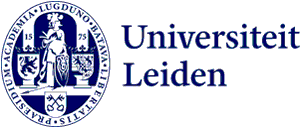
Four projects awarded science communication grants
A climate game, a science and music festival, a mobile psychology lab and interactive sessions on anxiety in children. The Dutch Research Council (NWO) has rewarded four projects in which Leiden researchers are bringing science and society closer together. What are these projects?
ClimateCasino: a serious game for senior secondary vocational education
How is climate change impacting our society? Many young people, including those in senior secondary vocational education, have questions about this. But it is difficult to reach them with written scientific information. Environmental scientist Joeris Reinders has therefore developed ClimateCasino, a serious game that introduces young people to the climate and sustainability in a playful and thought-provoking way. Five players sit down with a climate scientist and a climate croupier and answer five quiz questions about climate change. The players choose an answer to each question and place chips to show how sure they are of that answer.
Applicant: Joeri Reinders (Leiden University College).
Snaartjes: interactive children’s science and music festival
Snaartjes is an interactive festival for children aged from 8 to 12 that brings science communication and music together. Music can play a motivating and connecting role in children’s development. At Snaartjes children who may not usually be exposed to science are given an interactive introduction to research about the special connection between people and music. The festival is a collaboration between researchers and musicians with various activities approaching music from the perspective of psychology, neuroscience, musicology, behavioural biology and genetics. The festival will be held at TivoliVredenburg in Utrecht on 15 June.
Applicants: Fleur Bouwer (Institute of Psychology), Lara Wierenga (Institute of Psychology), Henkjan Honing (University of Amsterdam).
Flirting with science. Psychology Lab on Wheels brings together researchers and young people.
How do young people let each other know they are interested? The Psychology Lab on Wheels is a platform where researchers and young people can talk about sexuality and attraction. The researchers perform experiments and other activities in this mobile lab. They will also do so at four ‘Evening of Seduction’ at Naturalis Biodiversity Center, where they will also present their research findings. Alongside workshops and discussion panels, young people will have the opportunity to participate in research. The knowledge and insights from this project should help develop interventions, for example for sexual misconduct and harassment.
Applicants: Mariska Kret (Institute of Psychology), Iliana Samara (Institute of Psychology) and Margaret Gold (Leiden University Open Science programme).
The power of science communication: the timely identification and treatment of children with anxiety and stress
Anxiety and stress are the most common mental health problems and often originate in childhood. About 20 per cent of all children experience significant anxiety and stress and these do not go away by themselves. Anxiety disorders can lead to other problems such as school refusal, depression, loneliness and substance use. Around half of children with these problems go undetected. In this project, relevant knowledge and skills are shared in interactive sessions with children, parents, schools, youth workers and researchers. Leiden psychologists thus gain important information from the community, which will help identify the warning signs and provide personalised care.
The applicants are all from the Institute of Psychology: Anke Klein, Marieke Bos, Anika Bexkens, Michiel Westenberg.
NWO has rewarded a total of nine science communication projects, four of which have a main applicant who is a researcher at Leiden University. The projects receive a grant within a Dutch Research Agenda (NWA) call for science communication proposals. A new call for applications will open at the end of November 2023.
Photo: Psychology Lab on Wheels. Marc de Haan
